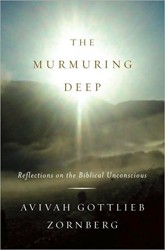Rabbi Lawrence A. Hoffman, a recognized scholar in the field of Jewish liturgy, is the editor of a ten-volume series on weekday and Shabbat liturgy. Shifting his attention to the High Holy Days, he also edited the Prayers of Awe series on the central prayers of Rosh Hashanah and Yom Kippur. In the sixth book of this series, Rabbi Hoffman focuses on Avinu Malkeinu (Our Father, Our King), one of Judaism’s most beloved prayers.
Following two introductory chapters — one of which traces the history of the prayer’s development and the second of which considers its literary and linguistic aspects—Naming God offers a series of essays by scholars, rabbis, educators, and Jewish communal leaders from across the denominations. These essays are divided into seven categories that address, respectively, the liturgy itself, the prayer’s music history, parallel motifs in other texts, feminist critique, considerations in a liberal Jewish context, and broader interpretations of the prayer. Two appendixes provide a collection of different versions of the prayer from across history and alternative versions with a liberal perspective.
Highlights of the book include a chapter by Dr. Erica Brown, who grapples with the prayer’s thirty-third line: “Our father, our king, remember that we are but dust,” which might suggest our worthlessness. However, through a close reading of other biblical texts, Brown suggests that the reminder that we are dust is in essence a reminder of the love that God expressed in fashioning the first human being. It is with this love that we are sustained in our relationship with the Creator to this day.
In another chapter, Rabbi Bradley Shavit Artson considers the chutzpah (impudence) that we express when we name God through Avinu Malkeinu. While one might understand naming something to be an expression of one’s power over the named, Rabbi Artson writes: “Names reveal who we are but also what we hope to become, and they do so in terms of relationship between namer and named….It [naming] is an invitation to connect, an expression of relationship, a discovery of common ground.”
These words by Rabbi Artson speak to the core of what Naming God seeks to achieve. It provides a reader not only with a stronger connection to the nuanced language of Avinu Malkeinu, but also with a deeper understanding of the messages and meaning of the High Holy Days as a whole. Rabbi Hoffman has crafted a guidebook for the Days of Awe that provides a wealth of voices to lead us on a spiritual journey.
Related Content:





